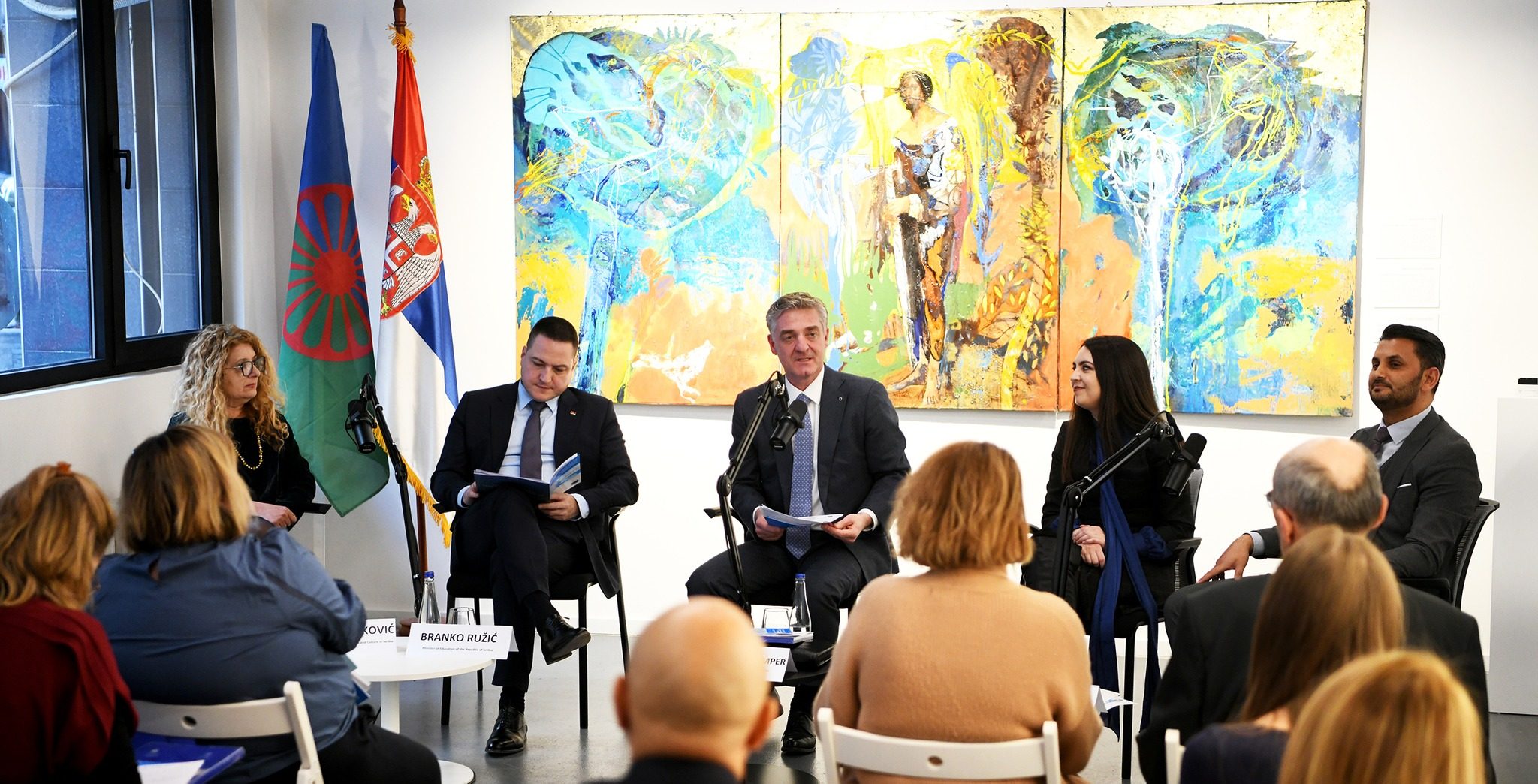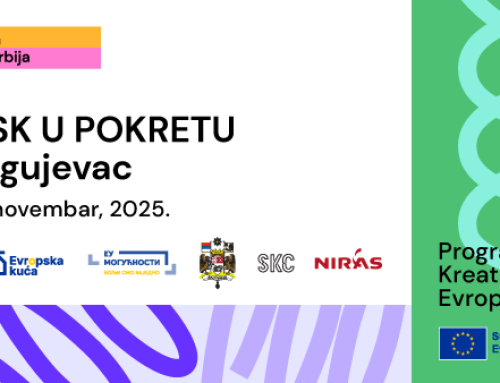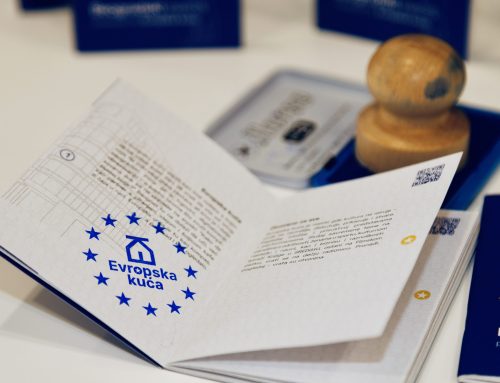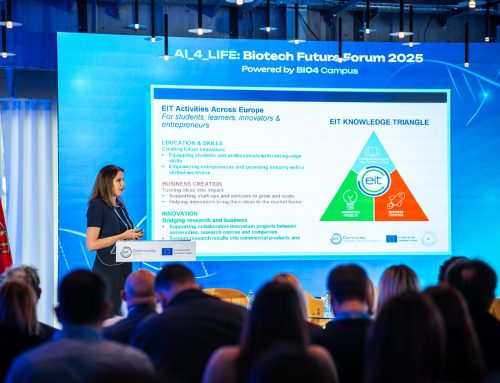On the occasion of International Roma Day which we celebrate on April 8, a briefing event on the inclusion of Roma history and culture into school curricula and teaching material in Serbia was organised by the Roma and Travellers Team and the Council of Europe Office in Belgrade in collaboration with the European Roma Institute for Arts and Culture (ERIAC) in Belgrade and the Roma Education Fund (REF). Consultation on the topic was carried out with the Minister of Education, Branko Ružić, and the diplomatic community in Serbia.
During 2022, the Council of Europe joined the efforts of ERIAC and REF in initiating the process of the inclusion of Roma history and culture in school curricula in Serbia in close co-operation with the working group of prominent Roma experts and the Institute for Advancement of Knowledge and Upbringing. Further steps in the process will be carried out in the next months.
Roma and Travellers’ presence in Europe and their contribution to European cultural heritage and history remain insufficient in formal and non-formal education and are only known to a limited degree by the general public. To this end, the Committee of Ministers adopted Recommendation CM/Rec(2020)2 on the inclusion of the history of Roma and/or Travellers in school curricula and teaching materials at national level on 1 July 2020. An effective tool to combat hatred, discrimination and prejudice, radicalisation, Holocaust denial and revisionism, this Recommendation to include the history of Roma and/or Travellers in school curricula aims to improve the understanding that Roma and/or Travellers are an integral part of both national and European societies. The Recommendation calls for countering persistent antigypsyism by offering a balanced and contextualised teaching of Roma and/or Travellers’ history, reflecting both their national presence and historical context and their common history as a people present in Europe for centuries. More resources on Roma history are also available in the Council of Europe Roma History Factsheets.
The Roma and Travellers Team of the Council of Europe also conducted a study with the Georg Eckert Institute and Roma Education Fund in 2019 on the representation of Roma in European curricula and textbooks. That research revealed that out of the 21 countries and Kosovo* included in the analysis, there was limited representation in terms of range of topics, and that the Roma were often misrepresented in textbooks, merely portrayed as victims or in a stereotypical way.
Promotion of the teaching of Roma and Travellers’ history and the Roma Holocaust and inclusion in school curricula and textbooks, also through training of trainers and teachers is one of the expected results of the Council of Europe Strategic Action Plan for Roma and Traveller Inclusion (2020-2025).





